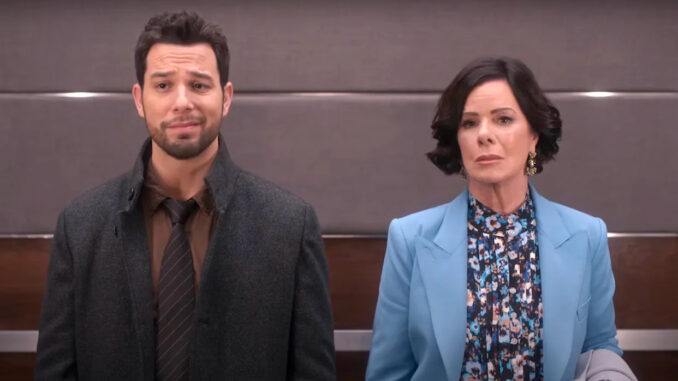
The Case of the Costume Change: How Marcia Gay Harden Hinted at So Help Me Todd's Untimely Demise
Marcia Gay Harden, with her sharp wit and undeniable talent, has always been an open book, willing to share anecdotes and insights that paint a richer picture of the productions she's involved in. While the cancellation of CBS's legal dramedy So Help Me Todd stung fans, perhaps a glimpse into Harden's observations, particularly those surrounding the show's production, offer a subtle, yet compelling, narrative about the factors that ultimately led to its untimely demise. While she might not have directly declared "this is why we were cancelled," her candid remarks suggest a complex interplay of budgetary constraints, creative compromises, and the ever-shifting landscape of network television.
One of the most telling, albeit seemingly minor, details Harden revealed in interviews revolved around the show's costumes. She mentioned, almost in passing, that in the first season, her character, Margaret Wright, a successful and impeccably dressed lawyer, enjoyed a wardrobe that reflected her status. We saw her in tailored suits, designer dresses, and statement jewelry. However, as the show progressed, there was a noticeable shift. The clothes, while still presentable, became less extravagant, less…Margaret.
This seemingly insignificant costume change, Harden subtly implied, was a symptom of a larger issue: budget cuts. In the unforgiving world of television production, finances dictate everything. A cut in the costume budget, though seemingly superficial, can be indicative of deeper financial anxieties. It suggests that resources were being diverted elsewhere, perhaps to keep other aspects of the show afloat. The subtle shift in Margaret's wardrobe wasn't merely a stylistic choice; it was a tangible manifestation of the financial constraints tightening around the show.
Furthermore, Harden's comments hinted at a potential struggle to maintain the delicate balance between the show's comedic and dramatic elements. So Help Me Todd thrived on its quirky humor and the endearing, albeit dysfunctional, relationship between Margaret and her son, Todd. However, maintaining that balance on a tight budget could have been challenging. Perhaps writers were forced to scale back on elaborate storylines or humorous set pieces that required more resources, instead opting for more dialogue-heavy scenes that were cheaper to produce. This shift, potentially driven by financial pressures, could have inadvertently affected the show's overall appeal and, consequently, its ratings.
Moreover, Harden's insights often touched upon the challenging dynamics of network television. She acknowledged the pressure to maintain viewership and the constant scrutiny from network executives. The shifting trends in television consumption, the rise of streaming services, and the ever-increasing competition for audience attention all contributed to a high-stakes environment. Even a show with a strong cast, a compelling premise, and a dedicated fanbase can fall victim to the unpredictable nature of the industry. Perhaps the network felt So Help Me Todd, despite its merits, wasn't generating the numbers needed to justify its continued investment.
While Harden never explicitly stated that budget cuts or creative compromises directly led to the show's cancellation, her observations offer a valuable glimpse behind the scenes. They suggest a complex web of factors, including financial pressures, creative adjustments, and the ever-changing demands of network television, all converging to impact the fate of So Help Me Todd.
In conclusion, the cancellation of So Help Me Todd was likely a multifaceted decision. Marcia Gay Harden's subtle hints, particularly those surrounding the show's production and budget, offer a compelling narrative about the challenges faced by network television shows today. The case of the costume change, and other seemingly minor details she shared, may not be the entire story, but they provide a valuable perspective on the behind-the-scenes realities that can ultimately seal a show's fate, reminding us that even the most beloved programs are vulnerable to the capricious winds of the entertainment industry.
